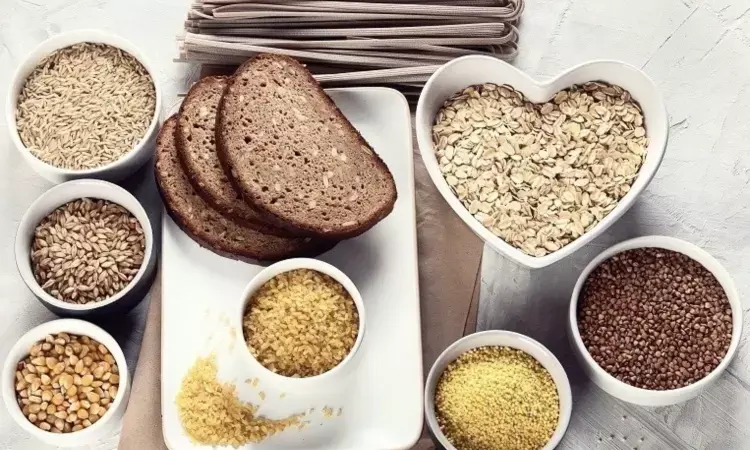- Home
- Medical news & Guidelines
- Anesthesiology
- Cardiology and CTVS
- Critical Care
- Dentistry
- Dermatology
- Diabetes and Endocrinology
- ENT
- Gastroenterology
- Medicine
- Nephrology
- Neurology
- Obstretics-Gynaecology
- Oncology
- Ophthalmology
- Orthopaedics
- Pediatrics-Neonatology
- Psychiatry
- Pulmonology
- Radiology
- Surgery
- Urology
- Laboratory Medicine
- Diet
- Nursing
- Paramedical
- Physiotherapy
- Health news
- Fact Check
- Bone Health Fact Check
- Brain Health Fact Check
- Cancer Related Fact Check
- Child Care Fact Check
- Dental and oral health fact check
- Diabetes and metabolic health fact check
- Diet and Nutrition Fact Check
- Eye and ENT Care Fact Check
- Fitness fact check
- Gut health fact check
- Heart health fact check
- Kidney health fact check
- Medical education fact check
- Men's health fact check
- Respiratory fact check
- Skin and hair care fact check
- Vaccine and Immunization fact check
- Women's health fact check
- AYUSH
- State News
- Andaman and Nicobar Islands
- Andhra Pradesh
- Arunachal Pradesh
- Assam
- Bihar
- Chandigarh
- Chattisgarh
- Dadra and Nagar Haveli
- Daman and Diu
- Delhi
- Goa
- Gujarat
- Haryana
- Himachal Pradesh
- Jammu & Kashmir
- Jharkhand
- Karnataka
- Kerala
- Ladakh
- Lakshadweep
- Madhya Pradesh
- Maharashtra
- Manipur
- Meghalaya
- Mizoram
- Nagaland
- Odisha
- Puducherry
- Punjab
- Rajasthan
- Sikkim
- Tamil Nadu
- Telangana
- Tripura
- Uttar Pradesh
- Uttrakhand
- West Bengal
- Medical Education
- Industry
Substituting refined grain with wholegrain oats improves cardiometabolic health of children

Denmark: Findings from a randomized crossover trial published in The American Journal of Clinical Nutrition have recommended exchanging refined grain with wholegrain oats and rye among children.
Marie Terese Barlebo Madsen, University of Copenhagen, Frederiksberg, Denmark, and colleagues found that high intake of wholegrain oats and rye reduced triglyceride (TG) and LDL cholesterol, increased beneficial metabolites in children and modulated bacterial taxa.
Intake of wholegrain is tied to a lower risk of cardiometabolic diseases in adults, potentially via changes in the gut microbiota. Cardiometabolic prevention should start early, but there is a lack of evidence on the effects in children. The researchers' team, therefore, aimed to investigate the effects of intake of wholegrain oats and rye on serum LDL cholesterol and plasma insulin (co-primary outcomes), other cardiometabolic markers, gut microbiota composition and metabolites, body composition, and gastrointestinal symptoms in children with high body mass index (BMI).
The randomized crossover trial included 55 healthy Danish 8-13-year-olds. They received wholegrain oats and rye (“WG”) or refined grain (“RG”) products ad libitum for eight weeks in random order. The researchers measured anthropometry, blood pressure, and body composition at 0, 8 and 16 weeks. Collection of fasting blood and faecal samples was done for analysis of short-chain fatty acids, gut microbiota, glucose homeostasis markers, and blood lipids. Questionnaires determined gut symptoms and stool characteristics. Diet was evaluated by a 4-day dietary record and compliance by plasma alkylresorcinols (AR).
The researchers reported the following findings:
- Fifty-two children with a BMI z-score of 1.5±0.6 (mean±SD) completed the study. They consumed 108±38 and 3±2 g/d wholegrain in the WG and RG period which was verified by a profound difference in AR.
- Compared to RG, WG reduced LDL cholesterol by 0.14 mmol/L and reduced total high-density lipoprotein cholesterol and triacylglycerol, without altering body composition or other cardiometabolic markers.
- WG also modulated the abundance of specific bacterial taxa, increased plasma acetate, propionate butyrate and faecal butyrate and lowered fatigue with no other effects on gut symptoms.
Among 8-13-year-old children with high BMI, a high intake of wholegrain from oats and rye compared to refined grain for 8 weeks lowered serum LLD cholesterol and TG and total HDL cholesterol without affecting plasma insulin.
These changes occurred with increases in short-chain fatty acids in both plasma and faeces. However, there was no change in blood pressure, glucose, body composition, BMI, IL-6, and CRP. The researchers found genus-specific changes in the microbiota with WG versus RG, without compromising microbial diversity.
"Our study contributes to a growing body of literature, showing cardiometabolic benefits of replacing refined grain with wholegrain, even in children, irrespective of effects on body weight," the researchers wrote.
"There is a need for further randomized trials among children, including long-term studies and trials focusing on specific wholegrain types, to gain a deeper understanding of mechanisms," they concluded.
Reference:
Madsen, M. T. B., Landberg, R., Nielsen, D. S., Zhang, Y., Anneberg, O. M. R., Lauritzen, L., & Damsgaard, C. T. (2023). Effects of Wholegrain Compared to Refined Grain Intake on Cardiometabolic Risk Markers, Gut Microbiota and Gastrointestinal Symptoms in Children: A Randomized Crossover Trial. The American Journal of Clinical Nutrition. https://doi.org/10.1016/j.ajcnut.2023.10.025
Dr Kamal Kant Kohli-MBBS, DTCD- a chest specialist with more than 30 years of practice and a flair for writing clinical articles, Dr Kamal Kant Kohli joined Medical Dialogues as a Chief Editor of Medical News. Besides writing articles, as an editor, he proofreads and verifies all the medical content published on Medical Dialogues including those coming from journals, studies,medical conferences,guidelines etc. Email: drkohli@medicaldialogues.in. Contact no. 011-43720751


